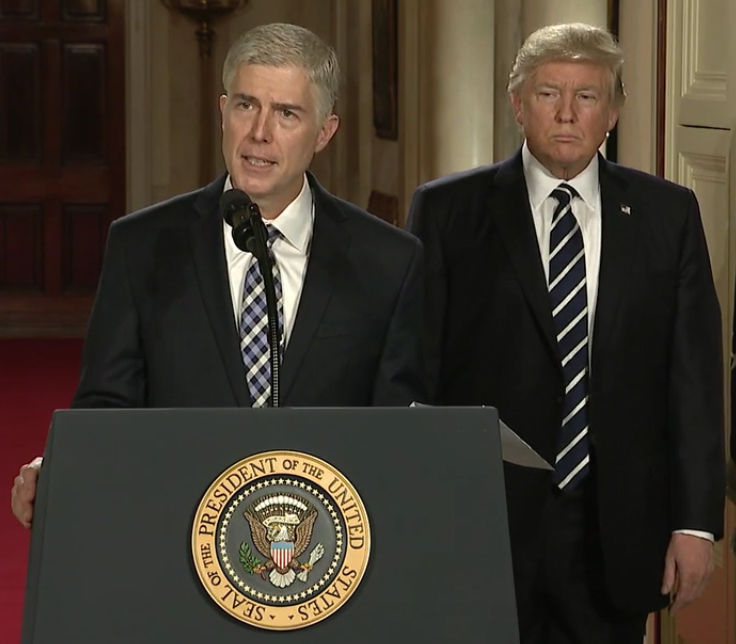Senate divided on Supreme Court nomination
Neil Gorsuch
April 5, 2017
Senate Democrats are set to take the floor this week in opposition of the approval of Judge Neil Gorsuch to the Supreme Court.
The Supreme Court has been down a member since Justice Antonin Scalia’s death in February 2016.
Gorsuch, nominated by President Donald Trump, holds a conservative viewpoint. If confirmed, he would restore the conservative majority to the Court.
After being approved by the Senate Judiciary Committee on Monday, Gorsuch needs 60 votes from the Senate to approve his official nomination. There are 52 Republicans serving in the Senate, all vowing to vote for the nominee. To achieve the final votes, eight Democrats would need to vote in favor of Gorsuch.
Senate Minority Leader Chuck Schumer is set to lead the Democrats in a filibuster against the nomination of Gorsuch.
A filibuster is used by a minority of lawmakers to delay or block the Senate from voting on a bill, or in this case, a Supreme Court nominee.
Dirk Deam, senior lecturer in political science, said that filibusters were originally used as a tool for individuals to be heard by the Senate, not for parties.
“It’s one of the oldest rules in the Senate, as they’ve always given consideration to minority opinions,” he said.
Senate Majority Leader Mitch McConnell has plans to change the rules of the filibuster. By a majority vote, Republicans could vote to abolish the filibuster altogether for Supreme Court confirmation votes.
“It’s almost certain that Republicans will do away with the rule,” Deam said.
If the change is made, Democrats could still block Gorsuch by using the 40-vote Senate minority vote. This tool is usually used to block the vote of legislation. With 48 Democrats in the Senate, this vote could be passed. Republicans, however, are calling for changes to be made to this rule as well.
This isn’t the first time the two parties have squared off over a Supreme Court nominee. Most notably, after Scalia’s death in 2016, Republicans refused to hold a hearing for President Barack Obama’s nominee, Judge Merrick Garland.
Because 2016 was an election year, McConnell said the next president should elect the nominee, not the sitting one. This chain of events has led the two parties to this week’s stand-off.
Deam said that Democrats don’t want Republicans to “get away with leaving out Garland” in 2016.
Iowa Sen. Chuck Grassley is the Judiciary Committee chairman. He supports Gorsuch and told Fox News this week that Gorsuch “will be on the Supreme Court by midnight Friday.”
Sen. Joni Ernst has also shown her support for Gorsuch, calling him “a well-respected nominee” on her official Facebook page.
With this current battle and heated political climate, Deam said that the Senate is facing a no-win situation.
“This party versus party mentality is killing us,” he said. “Trump will nominate a new [individual] even if this filibuster goes through.”
The Senate is set to debate on Gorsuch over the following days, with a vote expected by the end of the week.







